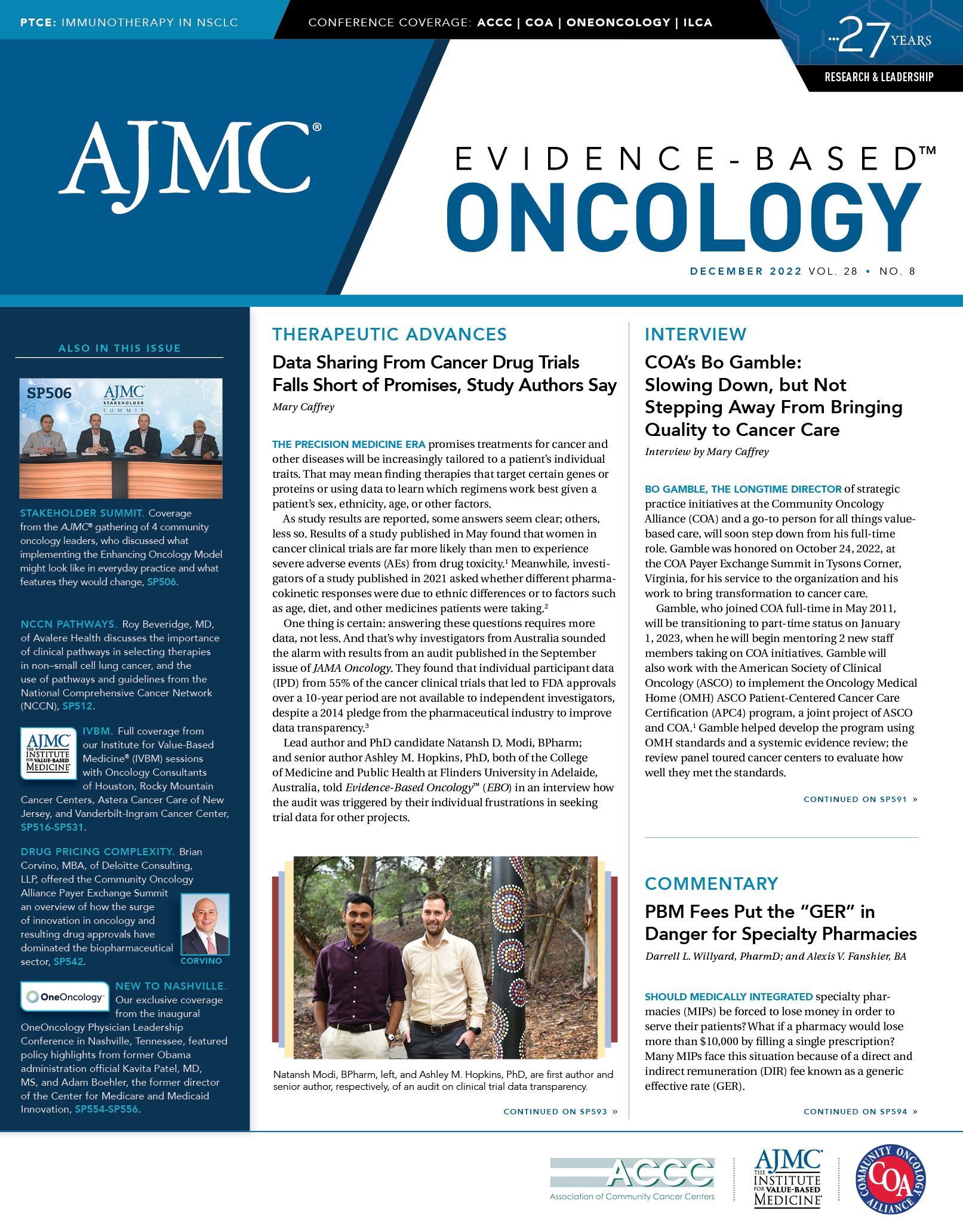- Center on Health Equity & Access
- Clinical
- Health Care Cost
- Health Care Delivery
- Insurance
- Policy
- Technology
- Value-Based Care
Aligning Payers and Providers for Value-Based Cancer Care Payments
Lucy Langer, MD, MSHS, national medical director, oncology and genomics, MSHS, national medical director, oncology and genomics, UnitedHealthcare, discussed value-based contracting at the IVBM® session October 5, 2022.
When talking about value in health care, all stakeholders must be aligned about what is being discussed and what the goals are, said Lucy Langer, MD, MSHS, national medical director, oncology and genomics, UnitedHealthcare (UHC).
What is quality? Is it evidence-based care or outcomes-based care, or consumer-driven care? If you want to decrease cost, is that total cost of care, oncology-related spend, or some other measure? Many oncologists will see patients who receive care at multiple sites, Langer noted, and if a patient with cancer needs a hip replacement, say, should that be part of the oncology cost equation?
“Who is the arbiter of what the right metrics are?” Langer asked. The patient should always be at the center, so should the patient be the arbiter? What about the providers? “I would argue that the provider should be the arbiter of what the best care is,” Langer said, but she wondered what the role of the payer or pharma should be.
Value-based contracting in oncology falls into 2 main buckets: the Oncology Medical Home (ie, payment for doing the right thing) and episodic/bundled payments (ie, payment by condition).
At UHC, the pilot relating to episodes of care—the Cancer Episode Program—drove down costs and inpatient days compared with a national control cohort:
- Total medical costs during cancer treatment were 13% lower for patients in the program.
- Total medical costs were 22% lower for patients with metastatic cancer in the program.
All-cause acute inpatient days during cancer treatment were 19% lower for patients in the program.
The pilot ran from 2015 to 2018 around a limited number of cancer diagnoses, and it was then expanded to include any authorized chemotherapy regimen. Ultimately, it included more than 40 diagnoses across 14 payment categories.
However, the challenge was that the program was too complex, and care delivery in oncology is already complex, Langer said. There is too much variability by cancer type, stage, and presentation. Then, there is too much complexity on pricing, she added, and providers were getting locked in for 2 or 3 years.
“So, we’re looking at cancer episodes and evolving it to the next thing,” Langer said, although she wouldn’t reveal what that might look like.

Balancing Innovation With Administrative Burdens in Cancer Care
January 23rd 2026At the Orlando session of the Institute for Value-Based Medicine, clinicians delivering cancer care in Central Florida address restrictions from Medicare Advantage plans, which can affect access to innovative treatments for breast cancer, myeloma, and bladder cancer.
Read More
Nathan Walcker Discusses Value-Based Oncology Care Initiatives at FCS
September 8th 2023Nathan Walcker, CEO at Florida Cancer Specialists & Research Institute (FCS), highlights some of the recent partnerships and initiatives at FCS to improve community-based oncology care from a value-based perspective.
Listen
How Health Care Institutions Can Leverage Biosimilars to Generate Savings
August 17th 2022On this episode of Managed Care Cast, Ryan Haumschild, PharmD, MS, MBA, from Emory Healthcare and the Winship Cancer Institute, explains the evolution of biosimilar pharmacoeconomics and the different strategies that health care institutions can implement to reap the benefits of biosimilar savings.
Listen
